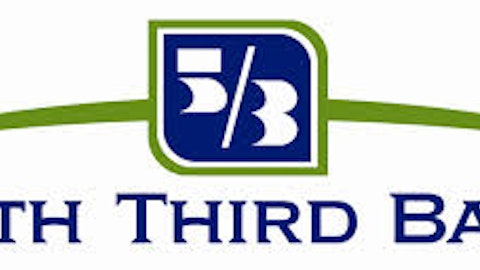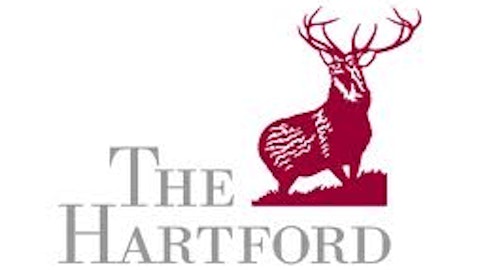Morgan Housel: What’s the latest with that?
Hank Greenberg: We’re growing very rapidly. We’re entering many foreign countries. We’re in China — I can give you a whole list — and we’re throughout the United States, and we’re growing faster than the market is growing.
We’re smaller, but we’re growing. We’re bigger today than we were last year. We’ll be bigger next year than we are this year. We’re growing at much better than double-digit. We started with I suppose about 80 people. We’re about 2500 right now, so from 2009 to now we’re adding countries and people.
Morgan Housel: You’re growing a business today, just like you did with AIG 40 or 50 years ago. What do you know today about running a global business that you wish you knew 50 years ago?
Hank Greenberg: Almost everything.
Morgan Housel: You’ve made all the mistakes in the past, and now you’ve learned from those.
Hank Greenberg: Yeah. Yeah. We can do things faster today because we know what we have to do.
Morgan Housel: When did AIG go off track, from being a first-class global organization to where it found itself in 2008?
Hank Greenberg: I don’t think AIG went off track. We had an Attorney General in New York, now a disgraced Attorney General …
Morgan Housel: There’s actually a quote in your book. I’m going to quote it here. It says, “Eliot Spitzer, an elected public prosecutor in New York, sparked the process that would drive AIG to near destruction.”
Hank Greenberg: That’s correct.
Morgan Housel: When people think about AIG’s downfall, they think of derivatives and leverage and liquidity. They often don’t think about Eliot Spitzer. What was his role?
Hank Greenberg: Very simple. I was on a conference call with analysts and one of them asked me, “What’s the regulatory environment like today?” This is after Enron and Sarbanes-Oxley.
There was a change in the atmosphere. Boards of directors became less supportive of companies and their management. They were more concerned about their own liability after Enron. When I was asked this question I said, “A foot fault is like a murder charge today,” which was a way of trying to dramatize the change that had taken place.
If you read the book, you’ll see there’s an affidavit by a man called Vacco, who had been the prior Attorney General of New York, and he happened to be in Spitzer’s office when one of Spitzer’s deputies came in and said, “Did you hear what Greenberg just said on an analyst call?”
He said no. He repeated that I said a foot fault is like a murder charge. Spitzer then said, in front of this prior Attorney General, “I’m going to take Greenberg down.” He used some other language which was just a disgrace for him to be saying that. It’s in the book.
He used that. He was running for governor. He wanted to take down big names, and he went on a campaign to do that.
He focused on a transaction we did with Warren Buffett’s company, General Re, which was our largest reinsurance partner. It was five years old, it had no effect on shareholders’ equity or earnings per share — nothing to do with that. It was a peanut transaction, and he tried to make that into a murder charge, and was successful. The board just gave up supporting the CEO.
Now, I was going to step down as the CEO in May. This was in March of 2005. I was going to step down as CEO, stay as chairman to make sure the transition to a new leadership team would go smoothly, but I stepped down from the whole thing. Spitzer forced me out as CEO and I decided not to stay as chairman.
What happened after that?
The new CEO abandoned all of the risk management controls that we had — literally abandoned them — and discontinued the staff meetings that we had on a Monday morning, that brought everyone, the key people, together. We knew exactly what was happening on a daily basis.
They lost control. If you read the book, which you did, there is a statement from the auditors who went to the then-Acting Chairman Bob Willumstad, and said, “The current management can’t run the company.”
They did nothing about it.
Morgan Housel: These risk problems that came up after you left in 2005, were they something that a general public investor, someone just reading the public information, the 10-Ks, could have pieced together, or was the risk taking that was going on inside of AIG something that you needed to be on the inside to recognize?
Hank Greenberg: Probably, although I’m not sure the 10-Ks that they filed were complete. For example, when the auditors made that statement to the chairman, that the current management was incapable of managing AIG, they went out to the market to raise $30 billion. They don’t disclose what the auditors had said to the chairman.
Morgan Housel: Let’s say 2006-07, were you personally aware of the risk taking that was going on inside of AIG? I guess what I’m trying to figure out is, if someone owned AIG stock in 2007 could they, even with hindsight, go back and see, “Oh, look at all this risk that was being taken?”
Hank Greenberg: No, I don’t think so. I was a major shareholder of AIG, the largest individual shareholder. I lost about 90% of my net worth. I was in a war with AIG at that time, literally.
Morgan Housel: We hear a lot about the phrase, “too big to fail.” Was AIG “too big to manage?”
Hank Greenberg: No. We managed it for 40 years, for God’s sakes. You need the right management. Of course it wasn’t too big to manage.
After all, the company was doing very well. There was nothing wrong with the company. The year I left — my last year was 2004 — I think we earned $11 billion, growing at double-digit. What can I tell you?




